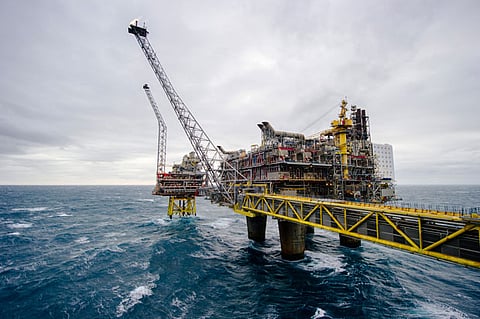Opec sees global energy demand soaring 60% by 2040
Opec expects a nominal price of around $110 per barrel for rest of this decade

Vienna: Global energy demand will increase by 60 per cent by 2040 compared to 2010 levels, the Organization for the Petroleum Exporting Countries (Opec) said Thursday, with greenhouse-gas-emitting fossil fuels remaining by far humanity’s main source of power.
World oil output is projected to soar from 81.8 million barrels per day (mbpd) to 99.6 mbpd over the same period, Opec said in its new annual report.
Regarding the price of oil, which has fallen almost 30 per cent since June to around $80 per barrel, Opec said that it expects a nominal price of around $110 per barrel for the rest of this decade.
By 2025, the nominal price will have hit $123.90, rising steadily to $177.40 by 2040. In real or inflation-adjusted terms the price will fall to $95.40 by 2020 and hit $101.60 by 2040, Opec predicts.
Saleem Khokhar, Head of Equities at NBAD’s Asset Management Group, said that the drop in prices might last for a few more months. “I don’t see this to continue for long. Once the demand-supply equilibrium adjusts, prices will stabilise.”
The share of oil in global energy use is however projected to fall from 31.9 per cent to 24.3 per cent, while that of all fossil fuels — oil, coal and gas — will dip from 81.6 per cent to 78.4 per cent.
Hydro, biomass and other renewables will account for 15.8 per cent, up from 12.7 in 2010 and nuclear power will represent 5.7 per cent, little changed from 5.6 per cent, the 12-member Opec said.
Renewables like solar and wind “are expected to continue to grow at a fast pace, partly as a result of government support. However, given their low initial base, their share of the global energy mix is expected to remain modest by 2040,” Opec said.
“It is fossil fuels that will continue to play the leading role in satisfying world energy needs in the future.”
The predictions are based on global economic output rising 160 per cent by 2040 compared to 2013 by purchasing power parity.
Projections also emphasise the continued leading role of the Middle East in international crude oil trade. Total crude exports from the region are projected to reach 22 mb/d by 2040, almost 5 mb/d higher than in 2013, and more than 7 mb/d higher than those projected for 2020.
Opec further stated that Abu Dhabi Oil Refining Company’s (Takreer) existing facility in Ruwais is expected to be fully operational in 2015. This will put onstream another 417,000 barrels per day of distillation capacity.
-With inputs from Fareed Rahman, Senior Business Reporter



